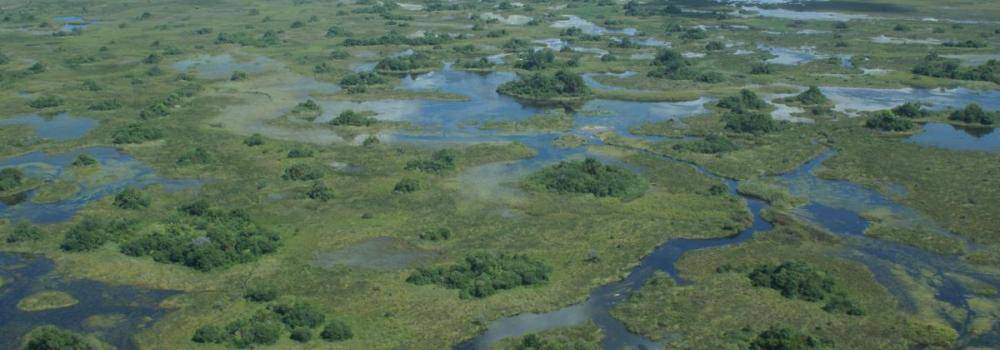
Overview
Botswana is a country home to significant, and multi-sector environmental education efforts. Botswana's National Policy on Natural Resources Conservation and Development outlines a National Environmental Education Strategy and Action Plan. Through these mandates, environmental education guidelines have been developed across all levels of education. The Department of Wildlife and National Parks, private sponsors, and NGOs have established environmental education centers throughout the country that offer programs for youth and adults. Further, the University of Botswana offers a tailored program in environmental education, courses for undergraduate teacher trainees, and graduate degrees (Master's and PhD) in environmental education. Botswana is currently working to introduce environmental education training into its college-level teacher training programs, evaluate and improve its school and community environmental education programming, and promote and expand its biannual national environmental education conference.
Policy & Practice
National Policy
In Botswana, environmental education is mandated through the Revised National Policy on Education and the National Policy on Conservation of Natural Resources. Since 1996, the Ministry of Education has incorporated environmental education into the existing curriculum. In 2003, the Ministry developed Environmental Education Guidelines, which were national goals for EE. The goals include: development of environmental awareness; knowledge and understanding of environmental issues; skills in addressing these issues; and the development of attitudes to protect and preserve the environment. (Ketlhoilwe, 2003)
EE in K-12 Education
The Revised National Policy on Education of 1994 introduced environmental education across the curriculum including both primary and secondary levels. In 1997, the National Environmental Education Strategy and Action Plan (NEESAP) was introduced. Its purpose is to increase environmental awareness through attitudinal change, readiness to learn, opportunities to share experiences, and recognition of traditional systems of managing natural resources.
Professional Development
Botswana does not have a certification program for environmental education. Through the National Environmental Education Committee based at the Department of Environmental Affairs, the country organizes national workshops and periodic national environmental education conferences. In addition, Botswana’s 1994 Revised National Policy on Education of 1994 (RNPE, 1994) recommended that colleges of education in Botswana train teachers in Environmental Education (EE) methodologies.
Leadership
National Associations
While Botswana does not have its own national environmental education association, the Association of Environmental Clubs of Botswana is a national NGO supported by the government through the Department of Wildlife and National Parks. In addition, Botswana is an affiliate of the Environmental Education Association of Southern Africa (EEASA), a regional membership association for environmental educators.
EE in the National Government
Botswana has two national offices that support environmental education. For the formal sector, especially basic education, environmental education is supported through the Department of Curriculum Development and Evaluation. Within the Department of Environmental Affairs, Botswana has established a National Environmental Education Committee.
National EE Campaigns and Funding
Botswana has adopted the integration and infusion approach to implement and practice environmental education. EE funding is therefore not separated from any budget allocation. Thus, there is no dedicated fund or funding for EE countrywide.
Organizations
Case Studies

This case study describes a collaborative effort to integrate environmental and sustainability education into teacher education at a college experiencing water scarcity.
